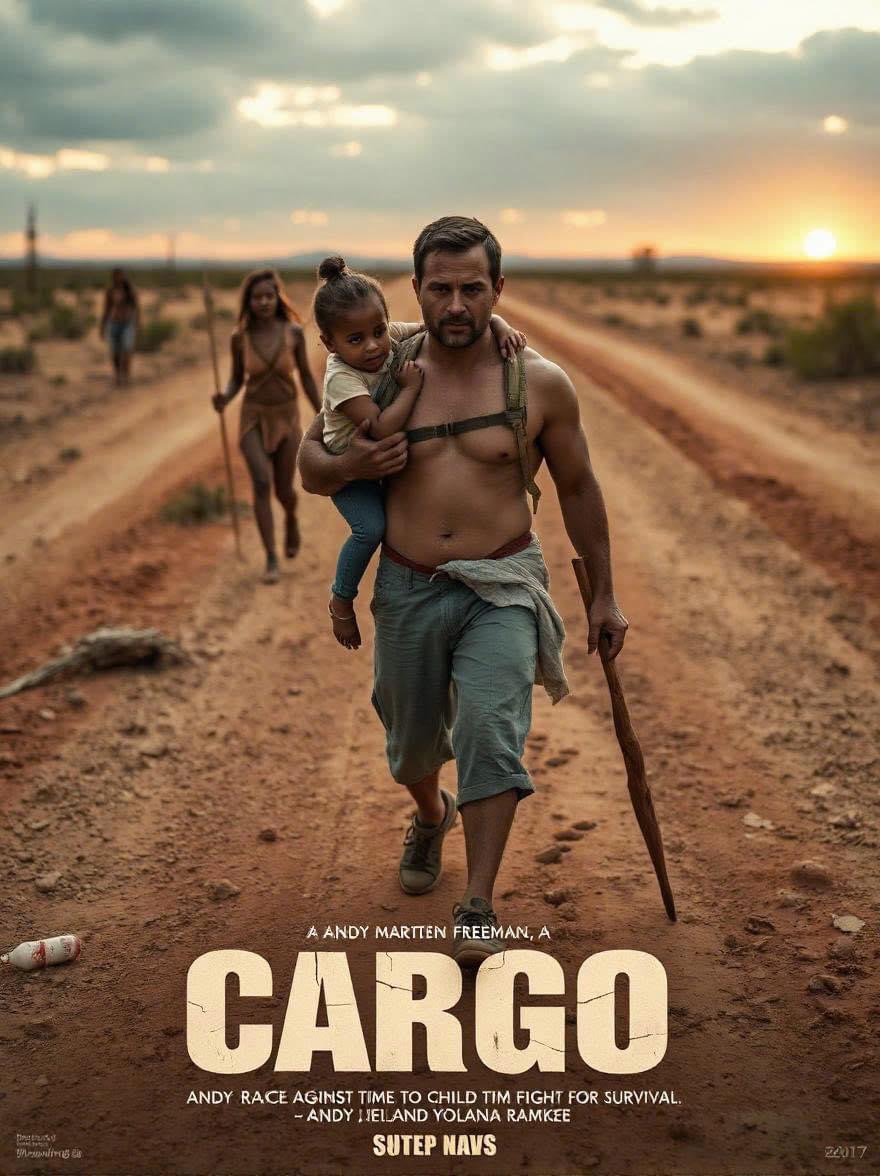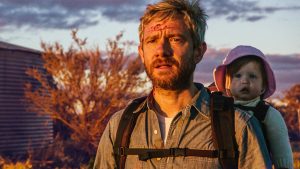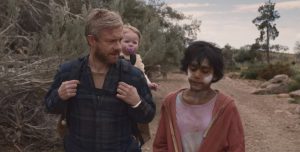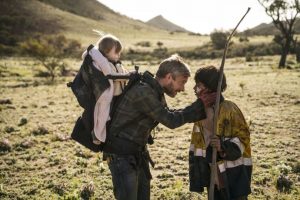Cargo (2017)

Cargo (2017) is an Australian post-apocalyptic drama directed by Ben Howling and Yolanda Ramke, based on their 2013 short film of the same name. Starring Martin Freeman in a standout performance, the film offers a unique take on the zombie genre, blending survival horror with deeply human themes of love, sacrifice, and hope. Here’s an in-depth review:
Plot Summary
Set in rural Australia, Cargo follows Andy (Martin Freeman), a father desperately trying to save his infant daughter, Rosie, in a world ravaged by a deadly virus that turns people into feral, zombie-like creatures. The infection spreads within 48 hours of being bitten, leaving little time for the infected to say goodbye or seek redemption. Andy becomes infected early in the story and is left with a harrowing mission: find a safe haven for Rosie before he succumbs to the virus.
Andy’s journey intertwines with that of Thoomi (Simone Landers), a young Indigenous girl trying to protect her infected father with the hope that traditional Aboriginal rituals can cure him. Together, they navigate a desolate landscape filled with danger, from both the infected and the remnants of humanity.
Themes and Emotional Depth
Unlike many zombie films that rely on jump scares and gore, Cargo is more interested in the human condition. It’s a story about parental love, resilience, and the lengths one will go to for their child. The narrative avoids cliché heroics, instead opting for a grounded and emotionally resonant approach. Andy’s infection serves as a ticking clock, heightening the tension while allowing the film to explore themes of mortality and redemption.
The inclusion of Aboriginal culture adds a refreshing and poignant layer to the film. Thoomi’s perspective and her people’s connection to the land and their spiritual beliefs offer a counterpoint to the bleakness of the apocalypse. The film subtly critiques colonial attitudes, positioning Indigenous knowledge as a source of wisdom and healing in a broken world.
Performances
Martin Freeman delivers one of the best performances of his career as Andy. He portrays a father’s desperation, love, and guilt with authenticity, making his character’s sacrifices deeply moving. Simone Landers is equally compelling as Thoomi, bringing innocence and strength to her role. The dynamic between Andy and Thoomi forms the emotional core of the film, creating a bond that transcends cultural and linguistic barriers.
The supporting cast, including Anthony Hayes as Vic, a survivalist whose cruelty reflects humanity’s darker side, provides a stark contrast to Andy’s compassion. Hayes’ performance underscores the moral choices characters face in an apocalyptic world.
Cinematography and Atmosphere
The Australian outback is a character in itself, with its vast, unforgiving landscapes amplifying the film’s sense of isolation and vulnerability. Cinematographer Geoffrey Simpson captures the harsh beauty of the environment, using wide shots to emphasize the smallness of the characters against the sprawling wilderness. The muted color palette and natural lighting contribute to the somber and haunting atmosphere.
The visual effects and makeup for the infected are understated yet effective, avoiding over-the-top gore in favor of a more grounded and eerie depiction of the virus. This restraint aligns with the film’s focus on emotional storytelling rather than shock value.









